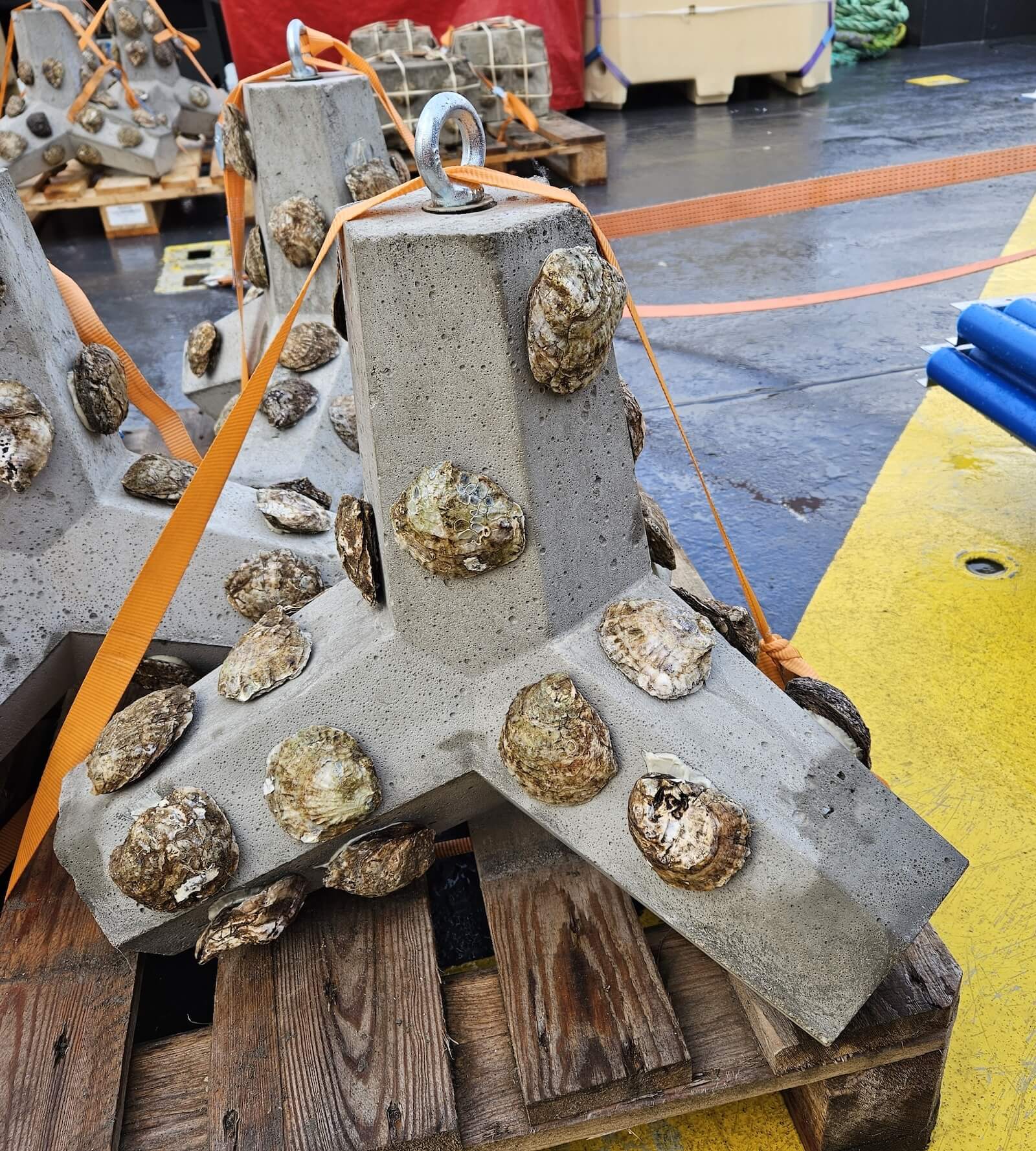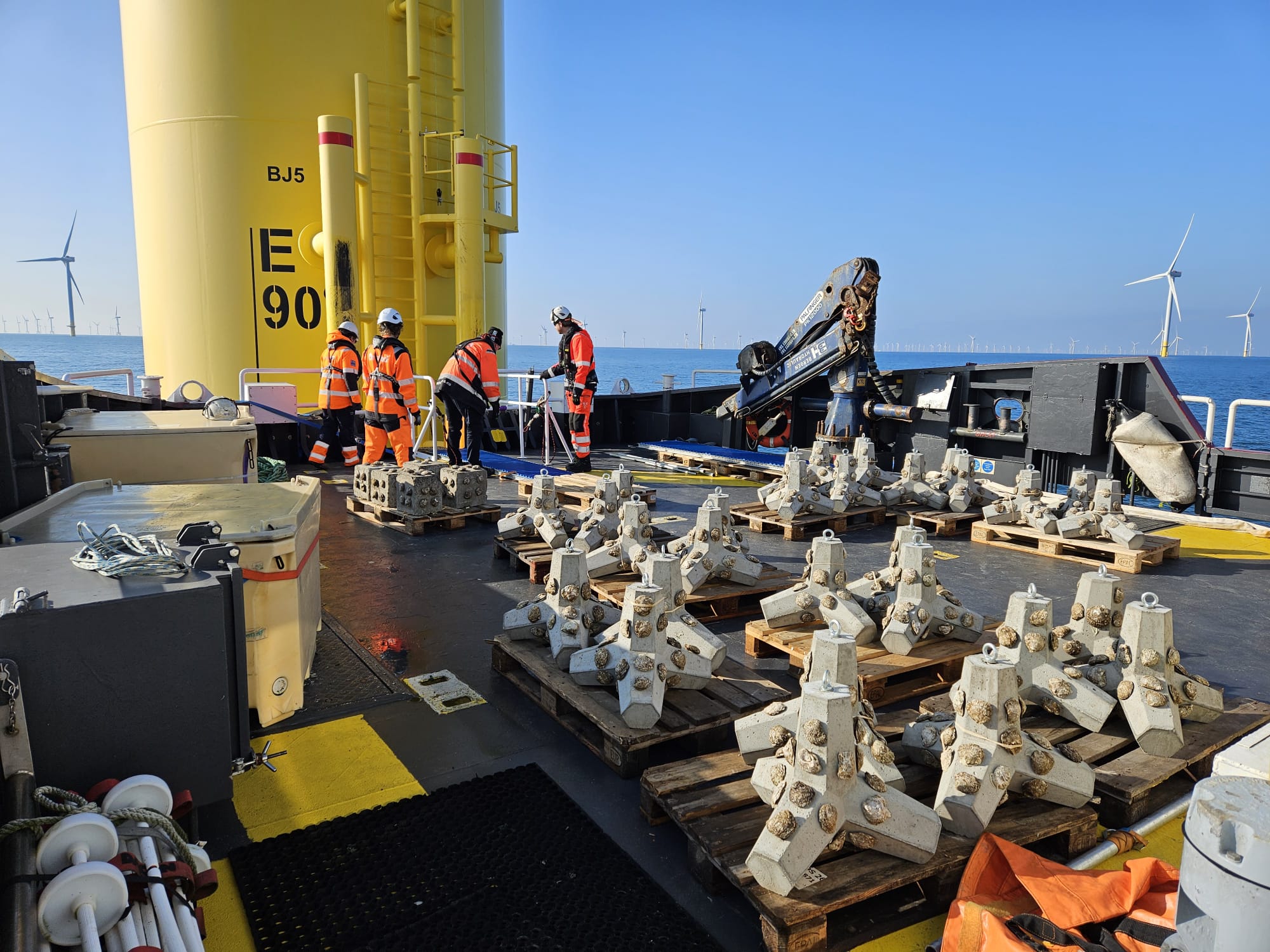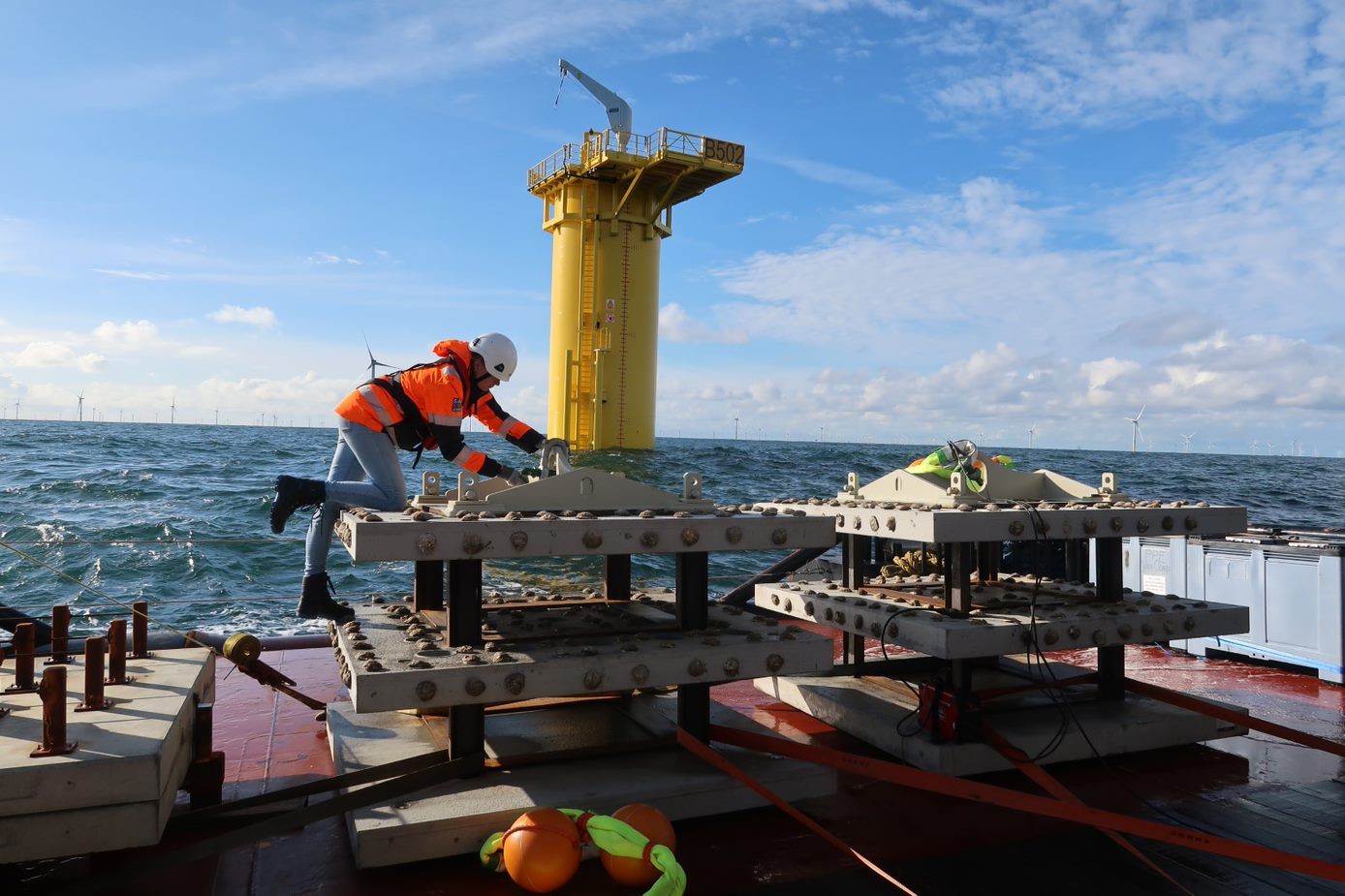The installation of hard substrates with oyster spat is a new and innovative method for oyster restoration. Oyster larvae attach themselves to hard substrates, such…
RESO
The RESO project showcases the first remote setting project of the European flat oyster in The Netherlands. Together with eight partners, from the private sector to academia, we design and implement a remote setting method that can significantly scale up restoration practices and enhance ecosystem services. This state-of-the art project positions the RESO consortium as a frontrunner in the field of oyster reef restoration, and may be a game changer for future biodiversity action.
-
Partners:
-
Location:
Port of Rotterdam
-
Execution:
January 2025
The RESO project is executed in collaboration with the Port of Rotterdam, TenneT, ARK Rewilding, Stichting Zeeschelp, Wageningen Marine Research, Wageningen University and Research, The Rich North Sea, and Waardenburg Ecology.
The project started in January 2025, and continues until the end of 2027. In the project we design and realize mobile remote setting basins in shipping containers. In these basins, the oyster larvae will settle on the rocks (after which they are called ‘spat’) and will be fed until strong enough to be outplaced at a restoration location. During the settlement process, we test the impact of sounds of a healthy oyster reef on the settlement rate of the larvae. The product that comes out of the mobile remote setting basins after a few weeks is spat on rock. Installation methods for these rocks are developed and tested to select the best performing one. In 2025 we install spat on rock in the Port of Rotterdam, and in 2026 we install another batch at a cable crossing in the North Sea. Monitoring continues until 2027, and will indicate the effectivity of the developed method.





